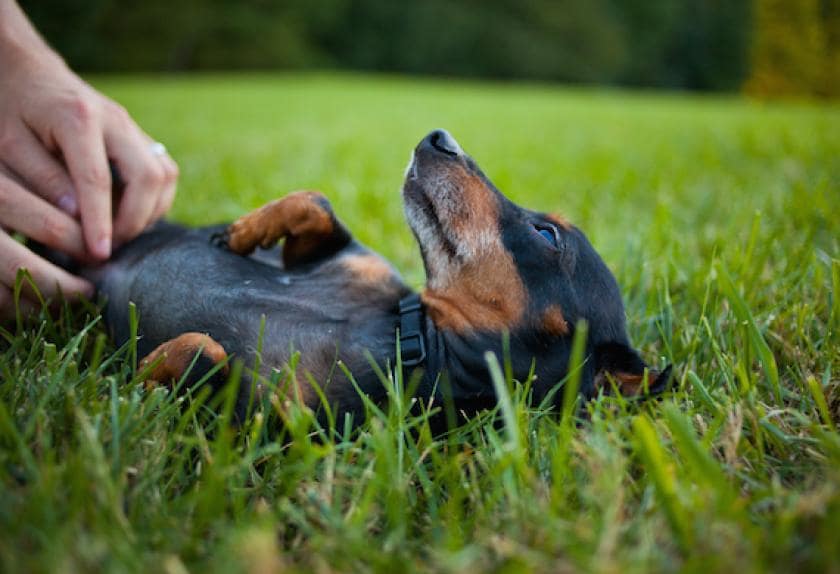

At the first indication of any stool sniffing or investigation the dog should be interrupted with a firm command or a quick pull on the leash (this is particularly effective for dogs wearing head halters). If you make a diary of how often and when your dog has bowel movements, you should be able to accompany him or her outdoors, wait until your dog eliminates (it can be useful to train on command), call your dog to you and have it sit for a reward, and clean up the stool before leaving your dog alone. How can coprophagia be treated?Ĭoprophagia can best be corrected by preventing access to stools, by thorough cleaning of the pet's property, and by constant supervision when the pet is outdoors. It is one of the odors that they are constantly attracted to when investigating their environment. In fact, stools themselves are seldom unpleasant to dogs. Dogs that eat the feces of herbivores may be attracted to the digested vegetation. Cat feces and those of some other animals often have enough appealing attributes (odor, texture, and taste), to overcome the fact that they are fecal wastes. It is not unusual for dogs to steal food items, raid garbage cans, and chew on, or eat non-food items that most humans would consider unusual or even disgusting. Why do dogs eat the stools of other animals? The owner that uses the outmoded, inhumane and useless training technique of "sticking the dog's nose" in its stool when it has soiled the home, may be further encouraging coprophagia.

Early intervention can help reduce the possibility that the behavior will become a long-term habit. In adult dogs the innate behavior of grooming and cleaning newborn puppies and eating their excrement, along with the well documented fact that dogs tend to be attracted to infections or discharges of their pack-mates, which they will sniff and lick, may explain some of the motivation for coprophagia. "The owner that uses the outmoded, inhumane and useless training technique of "sticking the dog's nose" in its stool when it has soiled the home, may be further encouraging coprophagia." There may also be an observational component, since the bitch cleans and ingests the puppy's excrement in the nest, and puppies may learn to mimic the behavior of their mother or other playmates that perform this behavior. Since coprophagia may attract a great deal of owner attention, the behavior may be further reinforced. When left unsupervised, puppies may simply begin to investigate, play with, and even eat stools as a play, investigative or scavenging behavior. There have been many explanations suggested for this behavior. What are some of the behavior reasons that a dog might eat its own stools?Ĭoprophagia is a common problem in some puppies, which usually clears up by adulthood with good nutrition and proper direction and supervision. It should also be noted that if a dog develops a taste for a particular dog's stool, that other dog should be tested for any type of condition that might lead to poor digestion of the food (with the result that excess food nutrients remain in the stool). Dogs that are placed on extreme calorie restriction or that are fed poorly balanced diets may also begin to eat their stools. In addition, any condition that might cause an increase in appetite or an unusual appetite, such as diabetes, Cushing's disease, thyroid disease, or treatment with certain drugs such as steroids may lead to an increase in stool eating. When adult dogs begin to eat stools, it may also be due to malabsorption of nutrients or to dietary nutritional deficiencies. Malabsorption of nutrients or to dietary nutritional deficiencies." "When adult dogs begin to eat stools, it may also be due to In addition, if the stools contain large amounts of undigested food material, there is an increased likelihood that the puppy would eat the stools. Feeding a poorly digestible diet, underfeeding, and medical conditions that decrease absorption such as digestive enzyme deficiencies or parasites, could lead to malnutrition or vitamin and mineral deficiencies, and therefore an increased appetite and possibly stool eating. If the stool is unusually soft or appears to be poorly digested, additional stool or blood tests may be warranted. Stool testing for parasites would be the minimum level of testing. In addition to a complete physical examination, the puppy's diet and its stool frequency and consistency should be evaluated. What are some of the medical causes?Īny medical problem that leads to a decrease in absorption of nutrients, causes gastrointestinal upset or causes an increase in the appeal of the dog's stool, could lead to coprophagia. These problems must first be ruled out before a purely behavioral diagnosis can be made. While most cases of coprophagia appear to be purely behavioral, there are indeed numerous medical problems that can cause or contribute to coprophagia.


 0 kommentar(er)
0 kommentar(er)
